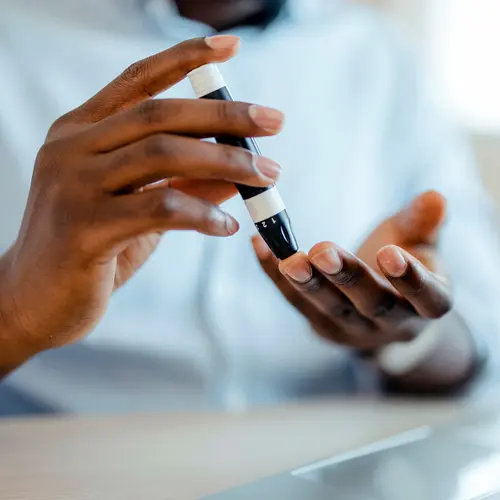If you use insulin for diabetes, you still might get swings in your blood sugar levels once in a while. But what if they won't go down, even with insulin?
Don't worry. It's not the only way to get your condition under control. Healthy habits and diabetes medicine can also help.
Go Low-Tech
Some of the best ways to prevent high blood sugar are old-school:
Exercise. When you do it regularly, it's like adding another medicine to your care. It makes the insulin you take work better, and it removes the sugar, or glucose, from your blood.
It also helps you lose weight, which can lower blood sugar. Try to build up to at least 30 minutes of moderate exercise most days, even if you start with just 5 minutes. Talk to your diabetes care team first about how to work out safely.
Eat right. A healthy diet keeps your blood sugarwithin a safe range. It's the most important way to help you shed pounds if you're overweight. Work with a registered dietitian or a certified diabetes educator to learn about the best food to eat and how to build a meal plan that works for your lifestyle.
Weight loss medications are another option you can consider if you need to get thinner. Talk to your doctor about which ones might be a good choice for you.
Relax. Stress blocks your body from releasing insulin, and that lets glucose pile up in your blood. If you're stressed for a long time, your sugar levels will keep building. Regular exercise and relaxation techniques -- like yoga, meditation, tai chi, and breathing exercises -- can help.
Increase Insulin
If the insulin dose you take isn't enough to lower high blood sugar, your doctor may change how much you take and how you take it. For instance, they may ask you to:
- Increase your dose.
- Take a fast-acting type before meals to help with swings in blood sugar after you eat.
- Take a long-acting type once or twice a day to help give you smoother blood sugar control.
- Use an insulin pump, which may make it easier to manage your blood sugar levels.
Other Reasons for High Blood Sugar
There are other possible causes of your high blood sugar, such as insulin resistance, which may run in your family. That's when your body doesn't respond as well as it should to the insulin it makes. Or, you may be taking a drug for another health problem that keeps your body from using it well.
How you use insulin can also matter. If you give yourself shots in the same place over and over, for instance, that area may scar, which can affect how your body absorbs the hormone. It helps to change spots or use an insulin pump.
Some people also take less insulin than they should. It might be because they're afraid of low blood sugar or they're nervous about needles. You might feel more comfortable by slowly increasing your insulin dose. Consider an insulin pump or pen if you don't like needles. Many pumps alert you if your blood sugar is dropping.
Whatever the cause of your blood sugar highs, work closely with your doctor to find a solution. And always talk with them before you make any changes in your insulin dose.

